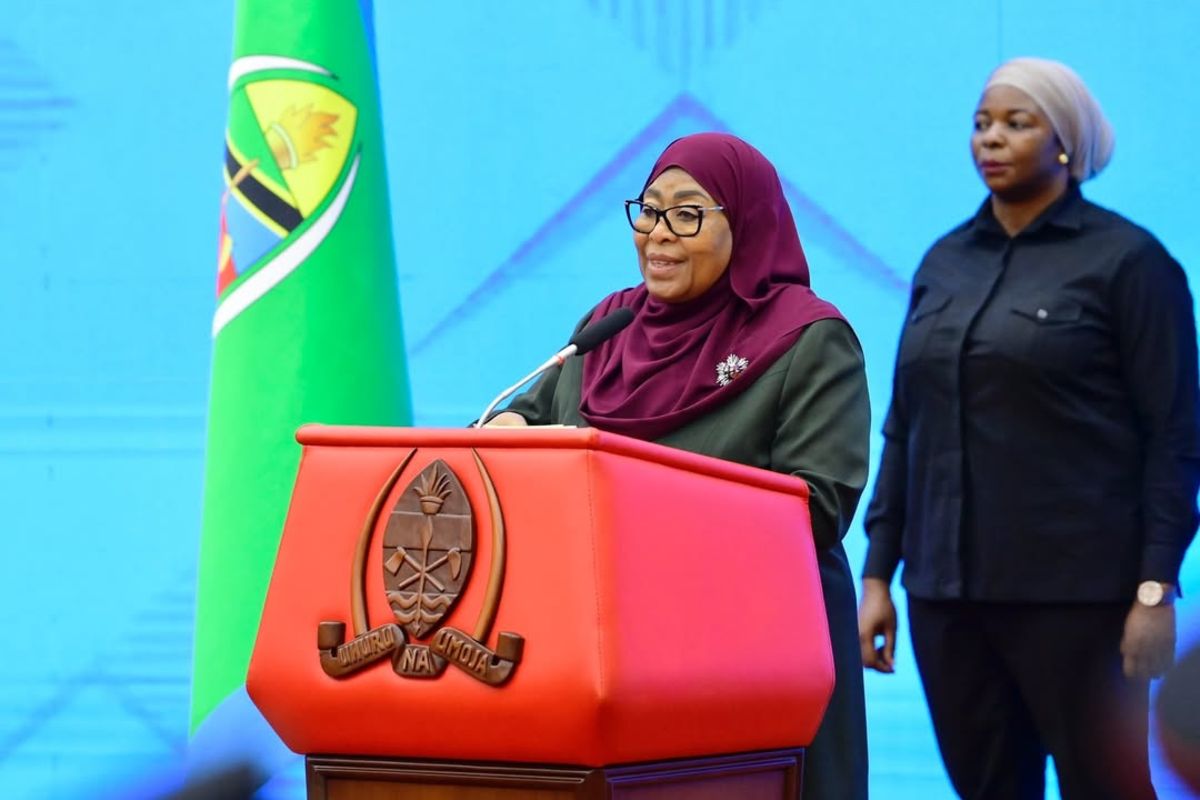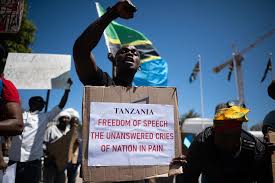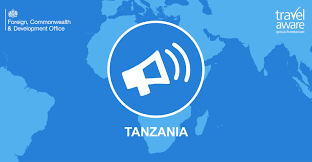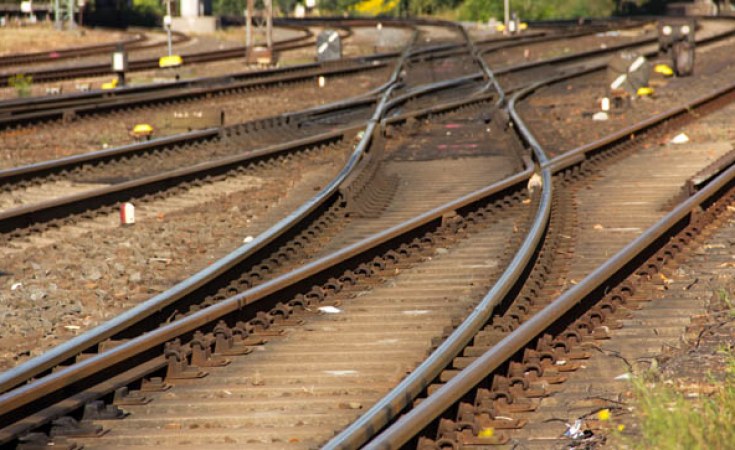Tanzania Erupts: Suluhu's Landslide Victory Sparks Widespread Protests and Regional Diplomatic Moves
&format=jpeg)
Tanzania has been gripped by widespread protests and political unrest following a contentious election, marking an abrupt end to decades of relative calm and political stability. The European Union Parliament has labeled Wednesday’s election a “sham,” sparking intense citizen-led demonstrations across the East African nation. The sudden eruption and intensity of these protests caught many observers by surprise, with Tanzanians employing familiar strategies for dissent seen in other global movements, notably in Madagascar, Nepal, and Kenya.
The protests emerged after an election process where key opposition candidates were either barred from participating or imprisoned, effectively giving the incumbent, President Samia Suluhu Hassan, a significant advantage. Official results declared Hassan the winner with a landslide 97.66 percent of the vote, dominating every constituency. Hassan, who ascended to the presidency in 2021 after the sudden death of her predecessor, John Magufuli, reportedly sought to solidify her position with this emphatic win, facing internal opposition from parts of the army and Magufuli's allies. Rights groups claim she oversaw a “wave of terror” preceding the vote, including high-profile abductions.
Unlike previous movements, the ongoing protests have been largely organic and leaderless, driven directly by citizens pouring into the streets to reject the election results and demand electoral reforms. While opposition figures, including those disqualified from the polls, have voiced support, the movement's core has been grassroots. In the face of government crackdowns on opposition politicians and the disruption of rallies, social media became a powerful tool for citizen mobilization. Platforms were used to connect, rally around demands for electoral reforms, and a level playing field for all candidates. With local media avoiding coverage and international journalists expelled, citizen journalism flourished, filling social media with real-time photos and videos of the unfolding protests.
As the protests escalated, the government imposed an internet blackout across the nation, an apparent move to control the narrative by detaining journalists, shutting down communication channels, and ordering foreign journalists out. Despite these measures, technology continued to play a crucial role, with Tanzanians turning to Zello walkie-talkie phones, which function even under weak internet conditions, to share information and coordinate activities. A unique trend that emerged was “sending greetings,” where citizens used various platforms like phone calls, WhatsApp, SMS, and email to directly communicate their position on the elections to elected leaders and celebrities.
The turnout for these protests has been unprecedented, with thousands occupying streets across cities like Arusha, Mwanza, Dodoma, and Dar es Salaam for three consecutive days. Security agencies have struggled to quell the demonstrations. Accounts of violence are starkly contrasting: Chadema, the main opposition party, claims hundreds of people, possibly around 700, have been killed by security forces since election day. The UN human rights office, however, reported at least 10 deaths in three cities due to security forces using firearms and teargas. The government has vehemently denied using “excessive force” and dismissed the opposition’s death toll as “hugely exaggerated,” blocking journalists and making independent verification difficult. Reports also emerged of Kenyans being shot as protests spilled over to the Tanzanian-Kenyan border in Namanga.
The international community has closely monitored the deteriorating situation. United Nations Secretary-General António Guterres expressed deep concern, urging the Tanzanian government to safeguard fundamental rights, including peaceful assembly, freedom of expression, and access to information. Internally, public anger has also been directed at President Hassan’s son, Abdul Halim Hafidh Ameir, accused of overseeing the crackdown. While unconfirmed reports suggested some army elements siding with protesters, army chief Jacob Mkunda strongly supported Hassan, labeling protesters as “criminals.” Diplomatic relations have also been strained, with reports indicating President Hassan has kept Western embassies in the dark regarding her government's next steps, with no contact established between them.
As the political crisis deepens and President Samia Suluhu Hassan maintains a low profile, the situation in Tanzania remains tense. The outcome of the protests, coupled with the unverified but significant casualty reports and the government’s severe suppression of information, highlights a critical period for the nation’s democratic trajectory and human rights record, with the international community monitoring with concern.
You may also like...
When Sacred Calendars Align: What a Rare Religious Overlap Can Teach Us

As Lent, Ramadan, and the Lunar calendar converge in February 2026, this short piece explores religious tolerance, commu...
Arsenal Under Fire: Arteta Defiantly Rejects 'Bottlers' Label Amid Title Race Nerves!

Mikel Arteta vehemently denies accusations of Arsenal being "bottlers" following a stumble against Wolves, which handed ...
Sensational Transfer Buzz: Casemiro Linked with Messi or Ronaldo Reunion Post-Man Utd Exit!

The latest transfer window sees major shifts as Manchester United's Casemiro draws interest from Inter Miami and Al Nass...
WBD Deal Heats Up: Netflix Co-CEO Fights for Takeover Amid DOJ Approval Claims!

Netflix co-CEO Ted Sarandos is vigorously advocating for the company's $83 billion acquisition of Warner Bros. Discovery...
KPop Demon Hunters' Stars and Songwriters Celebrate Lunar New Year Success!

Brooks Brothers and Gold House celebrated Lunar New Year with a celebrity-filled dinner in Beverly Hills, featuring rema...
Life-Saving Breakthrough: New US-Backed HIV Injection to Reach Thousands in Zimbabwe

The United States is backing a new twice-yearly HIV prevention injection, lenacapavir (LEN), for 271,000 people in Zimba...
OpenAI's Moral Crossroads: Nearly Tipped Off Police About School Shooter Threat Months Ago
ChatGPT-maker OpenAI disclosed it had identified Jesse Van Rootselaar's account for violent activities last year, prior ...
MTN Nigeria's Market Soars: Stock Hits Record High Post $6.2B Deal

MTN Nigeria's shares surged to a record high following MTN Group's $6.2 billion acquisition of IHS Towers. This strategi...





